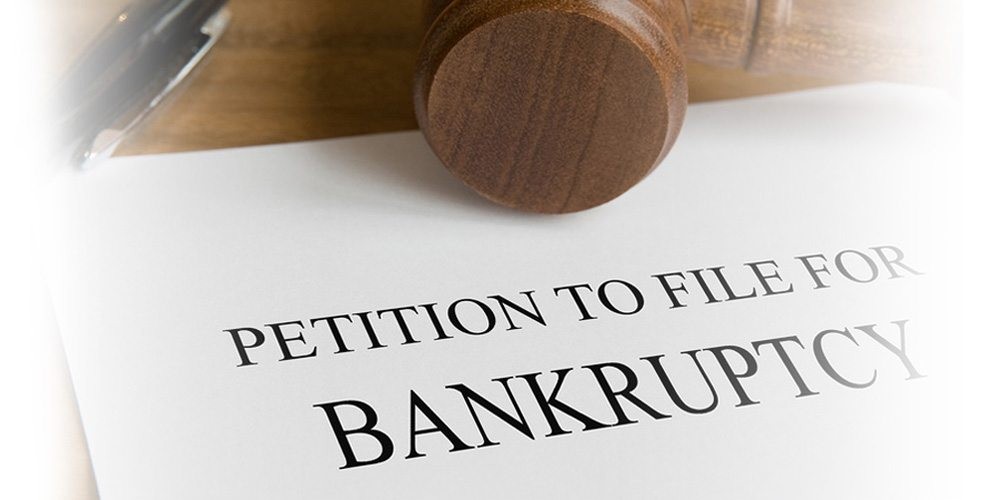Wage garnishment. The very idea is enough to strike fear into the hearts and minds of many otherwise well-meaning folks who struggle with their debts. Wage garnishments come in a variety of forms. The most common kinds of wage garnishments come from domestic support obligations (e.g. alimony and child support), tax debts, student loan defaults, and lawsuit judgments. To make matters worse, the patchwork of federal and state laws surrounding which creditors may pursue wage garnishments, how much may be garnished, and what protections debtors have available are immensely intimidating to untangle. My article seeks to demystify the wage garnishment patchwork and focuses on three distinct pieces of the puzzle: federal law, Pennsylvania Law, and Maryland law.
Some readers may recall that I wrote an article on January 14, 2020 which discussed creditor lawsuits. In “My Creditors Are Suing Me! What Can I Do”, I discussed the scenario where a creditor has sued you and may obtain a judgment against you. I also discussed some of the consequences, including a lien being placed on your real property. Real estate liens notwithstanding, with a judgment in hand, a creditor may pursue other remedies, including wage garnishment insofar as it is allowable under the applicable law.
We begin with federal law. Federal law is the starting point for any wage garnishment analysis. All debtors receive certain minimum protections and all creditors are subject to certain minimum restrictions. State laws will vary and some states will provide greater protection to debtors, but no state law may afford less protection to judgment debtors. The federal law at the heart of our analysis is the Consumer Credit Protection Act, which has an entire subsection devoted to “Restrictions on Garnishment” codified at 15 U.S.C. §1671 et seq.
The Consumer Credit Protection Act allows for wage garnishment, pursuant to a court order, and limits the amount of the garnishment to the lesser of twenty-five percent of a debtor’s weekly “disposable earnings” (defined as the amount leftover after deductions required by law) or the amount by which the debtor’s disposable earnings exceed thirty times the federal minimum wage ($7.25 per hour at the time of writing). The Consumer Credit Protection Act provides for certain noteworthy exceptions that may allow for greater garnishment:
- Garnishments for delinquent federal or state tax obligations;
- Wage garnishments ordered as part of a Chapter 13 Bankruptcy; and
- Domestic support obligations, which are capped at fifty percent if the debtor is supporting another child or spouse, sixty percent if the debtor is not supporting another child or spouse, and an additional five percent if the debtor is twelve weeks or more in arrears.
Additionally, for delinquent tax obligations and federal student loans, the Consumer Credit Protection Act does not require a court order in order to garnish wages. With this background, let us turn our attention to state laws, starting with Pennsylvania.
Pennsylvania state law provides greater protections than the minimal protections required under the Consumer Credit Protection Act. Whereas the Consumer Credit Protection Act permits garnishments for any type of debt and requires a court order for most garnishments, Pennsylvania permits wage garnishment only for a limited number of debt categories:
- Domestic support obligations, using the same guidelines as the Consumer Credit Protection Act;
- Tax debts (without the need for a court order). However, garnishments for delinquent state taxes are limited to ten percent of a debtor’s “net wages” (defined as the amount leftover after required taxes, FICA, involuntary retirement, union dues, and health insurance premiums) as long as the garnishment does not make a debtor’s salary fall below the Federal Poverty Income Guidelines (FPIG);
- Court-ordered criminal restitution obligations;
- Defaulted state-funded student loans, and such garnishments are limited to fifteen percent of the debtor’s net wages but not more than thirty times the federal minimum wage; and
- Unpaid rent on a residential lease, and such garnishments are limited to ten percent of net wages so long as the garnishment does not make the debtor’s salary fall below the FPIG.
Clearly, Pennsylvania chose to exempt more of a debtor’s wages from the grips of a wage garnishment than the Consumer Credit Protection Act had envisioned. What, then, does Maryland state law provide for debtors to protect? Maryland state law offers lesser protections to debtors than Pennsylvania and is closer to the federal minimums. Garnishments in Maryland are distinguished based upon when the garnishment is established. For a garnishment established before October 1, 2020, the limits and protections are the same as the Consumer Credit Protection Act. That is, the lesser of twenty-five percent of a debtor’s weekly “disposable earnings” (defined as the amount leftover after deductions required by law) or the amount by which the debtor’s disposable earnings exceed thirty times the federal minimum wage ($7.25 per hour at the time of writing). Garnishments established after October 1, 2020 follow Md. Code, Commercial Law §15-601.1 applies. Under this statutory scheme, no garnishment is allowed if the debtor’s disposable wages are less than thirty times the Maryland minimum wage and no more than twenty-five percent of a debtor’s disposable wages may be garnished.
Are you confused? Many people are. Wage garnishments are for fairness. Creditors can collect on their judgments and debtors are still afforded enough to live their day-to-day lives at a sustainable level. If you are subject to a current wage garnishment, or a wage garnishment is imminent, you may be wondering what other consequences are waiting in the wings and how to deal with the wage garnishment. The first, and most obvious consequence, is that you will receive less net pay in every check. When an employer is notified of a valid wage garnishment, they are required by law to remit the applicable portion of those wages to the judgment creditor until the judgment is satisfied. You may wonder: if your employer will be notified, can the employer terminate you for cause of the wage garnishment? It depends. Recall that the Consumer Credit Protection Act sets the minimum protections. Federal law specifically requires that no employee may be terminated for cause of one wage garnishment. The law is silent on whether employers may terminate an employee for multiple wage garnishments.
So, then, with all these negative consequences waiting to pounce, what is the best way to resolve a wage garnishment? That depends on the kind of garnishment. If it is domestic support, like alimony or child support, keep calm and keep paying. The garnishment and the debt are not going away. If the garnishment is for cause of delinquent taxes, student loans, or lawsuit judgments, you have other options. You can do nothing and allow the wage garnishment to continue until it is paid in full and the debt is resolved. However, as many of my clients will attest, having that kind of time and disposable income is a luxury that very few people are fortunate enough to enjoy. Oftentimes, the best option for folks facing an actual or potential wage garnishment is simply to file for bankruptcy protection and resolve all your outstanding debts, including the one that is garnishing your wages, in one fell swoop. Bankruptcy comes with immediate relief from the garnishment and the opportunity to discharge some or all of the debt and achieve a financial fresh start.
Garnishments are frightening and intimidating legal boogeymen. While they are designed with fairness and equity in mind, when you are subject to a garnishment, it will feel anything but fair. You will no doubt feel defeated and unable to survive on the remaining income. If you or a loved one are facing a wage garnishment and don’t know where to turn, the experienced, proven, and trusted bankruptcy attorneys at Mooney Law stand ready to assist you and answer your questions. Consultations for bankruptcy are always free at Mooney Law. To schedule a FREE consultation, call us today at 717-632-4656 or at 717-200-HELP. You can also visit the firm website at https://www.mooney4law.com.



